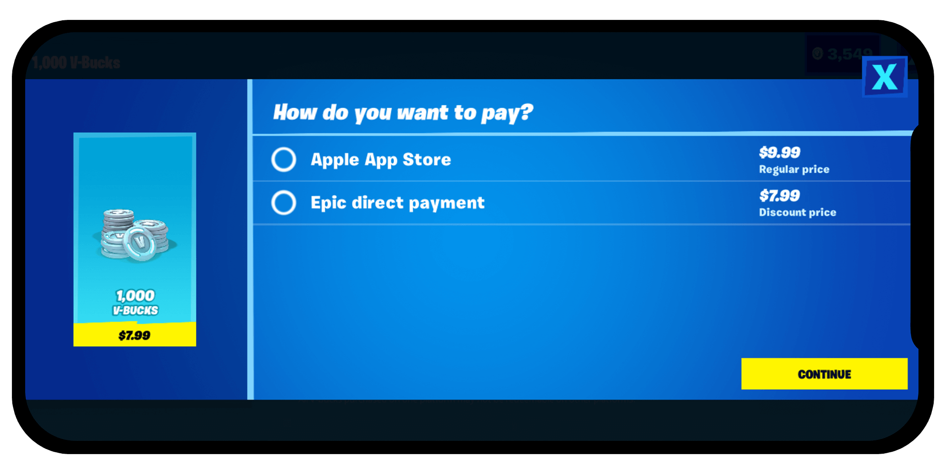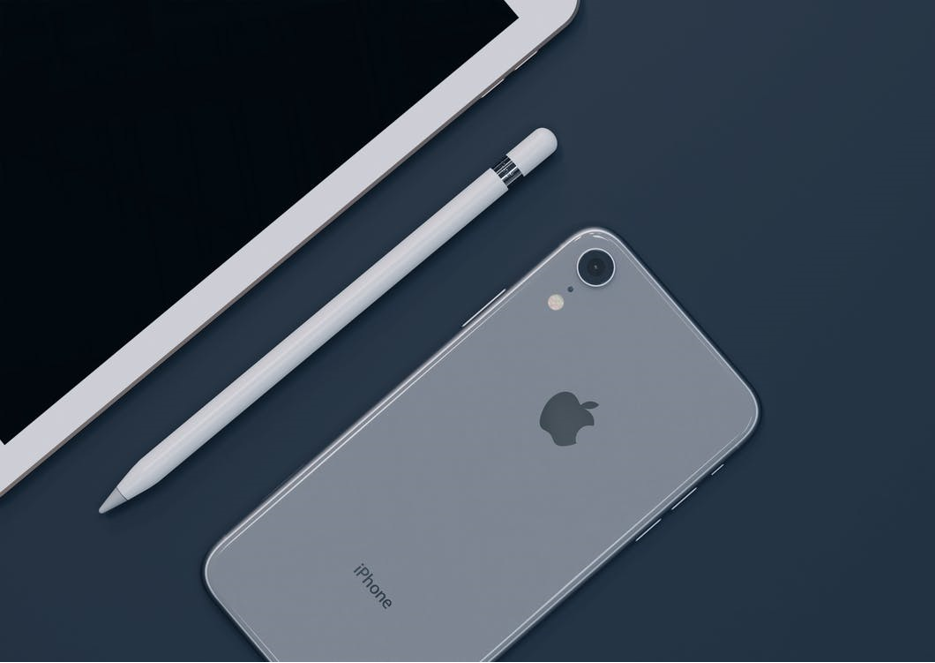The simmering feud between Apple and Fortnite maker Epic Games won’t vanish anytime soon.
A tech giant as huge as Apple – Forbes’ #1 Most Valuable Brand with $260.2 B revenue in 2019, $2T in current market cap – would normally welcome all challenges.
But Epic Games boasts some leverage – and size – as well. The Fortnite inventor is valued at around $17.3B and is said to haul $2.75M in gross revenues daily from its sales of “skins,” “V-Bucks,” and Battle Pass.
More importantly, Epic has the backing of the 350M registered Fortnite players whose majority are likely irate with Apple dropping the prominent game from the App Store.
What’s the full picture? Let’s have a look.
Sign of Things to Come
Much like Google, Apple’s In-App Purchase system leaves developers with 70% of the sale amount, while 30% goes to them as commission. In turn, the App Store ensures all its listed apps are safe, fun, and secure as per their Review Guidelines.
At least one person isn’t a fan of that scheme, tagging it as “absolute monopoly.” It’s Epic Games’ CEO Tim Sweeney.
He sought Apple’s permission for the presence of an ‘Epic Games Store app’ on June 30, claiming it would yield cost savings for buyers of digital goods and more income chunk for developers.
Apple declined, as Epic appears to want to alter, if not totally bypass, their pre-determined fee and ecosystem.

Photo credits to: Epic Games
Haywire Situation
On August 13, Epic enabled a payment option in Fortnite that circumvented Apple’s 30% commission cut. The option funneled payments to Epic in exchange for 1,000 V-Bucks (Fortnite’s in-game currency) discounted at $7.99.
That’s 20% cheaper compared to the regular App Store payment of $9.99.
In a matter of hours, Apple ditched the game from the App Store, alleging Epic’s move as a deliberate violation of the in-app payments clause “that apply to every developer who sells digital goods or services.”
(Note: Fortnite was booted from Google Play Store too, though still exists in other app stores like the Epic Games App.)
Epic then answered by filing an antitrust lawsuit the same day, a 62-pager accusing the tech powerhouse of having unmitigated power through their App Store, which according to them “exacts an oppressive 30% tax on the sale of every app.”
How Apple “prevents iOS users from downloading any apps from any source other than Apple’s own storefront,” and how it charges 10x lower in processing fees in Mac/MacBook software (i.e., 3% vs the 30% in-app commission) were also highlighted in Epic’s papers.
It has to be noted though that Epic’s premise doesn’t orbit around whether they’re in violation of App Store terms of service or not, but rather challenging the very guidelines of the iOS App Distribution and In-App Payment Processing.
Epic’s #FreeFortnite hashtag, together with their rejigged “1984” Super Bowl ad made to throw shade at Apple’s seeming dictatorship, added fuel to the fire too.
On August 17, Apple unleashed a haymaker by announcing Unreal Engine’s stay in their developer program would only be until August 28.
Sweeney argued such move is a direct attack to “Epic’s entire business,” as third-party developers to whom Unreal Engine provides support will cease to have such.
Deadlock hearing
Since then, Epic filed a TRO motion against the move, together with a petition to reinstate Fortnite back to the App Store.
On August 24, U.S. District Judge Yvonne Gonzalez Rogers spared Unreal Engine from being removed in the iOS bionetwork, stressing that Epic Games’ violation is only Fortnite-related.
Rogers labeled the move “retaliatory” from Apple and stated that while both parties are free to sue one another, “their dispute should not create havoc to bystanders.”
It isn’t a clean win for Epic though. Played on a scratched iPhone screen or not, Fortnite will still remain barred from the App Store, unless, of course, it abides by the guidelines.
Preliminary injunction hearing of both parties is slated for September 28.
Is Apple on the Ropes?
Hostilities with Epic couldn’t have come at a worse time for Apple. They have their plates full too with the Department of Justice’s antitrust review and with Apple Korea’s settlement.
Apple’s ideal scenarios:
- Epic’s social campaign turns lackluster enough, making them withdraw the suit and revert Fortnite back to its compliant version.
- They win by convincing the court their rate is fair – that it closely mirrors what other App Stores and digital marketplaces charge, and that they couldn’t assure the safety of apps developed outside their platform.
- Epic loses the case, the issue subdues, and regulators do little to nothing.
Worst nightmares:
- Epic claims victory by pointing to the overall community benefit, setting Apple up for a sizable rate adjustment. This results to a steeply reduced bottom-line at a time when iPhone sales are plunging.
READ MORE: iPhone 12 Is Just Around the Corner
- A loss for Epic, but the lawsuit turns heads of antitrust regulators for a closer investigation.
- Apple settles with Epic (very unlikely as both parties remain adamant with their stance, and this would trigger other developers to follow suit).
Everything to Gain for Epic Games?
A greater piece of that $2.75M+ daily revenue, winning new gamers, and being remembered as a trailblazer – those are just some of the gains Epic is set to relish if they win versus Apple.
And even if they don’t (technically), they still put their nemesis in a tough spot with all the clout their lawsuit brought.
But because Apple would only take back Fortnite in its conforming version which Epic condemns, they bleed for lost revenue by way of first-install purchases.
Plus, iPhone and iPad gamers who re-downloaded the game may end up uninstalling since the Chapter 2, Season 4 update won’t kick in in the iOS platform owing to the feud.
Add litigation costs to the mix as well. It’s clear that no party goes unscathed here.
Conclusion
Apple and Epic Games’ dispute involves serious money and business leverage, with neither giving an inch. But we hope at the end of all this, it’s truly consumers and the community who end up victorious.
At HLC Wholesale, we have a plethora of trendy and superior tech accessories. Glance at our latest arrivals now and enjoy automatic discounts.




